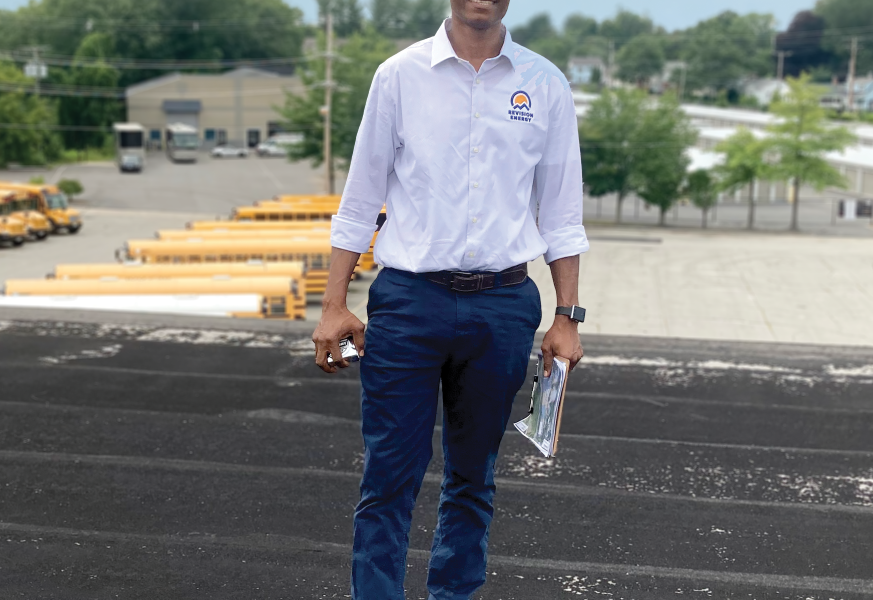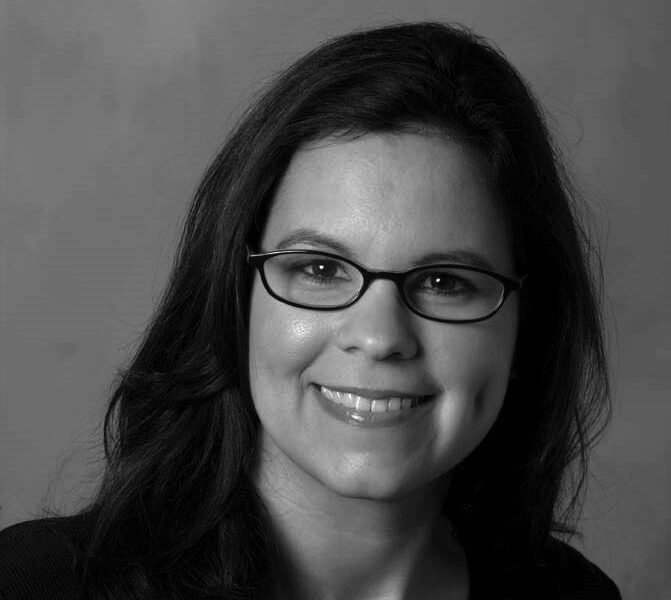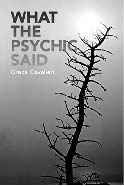
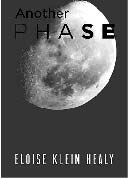
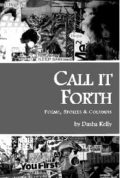
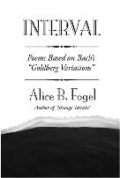
When Grace Cavalieri taught at Antioch-Columbia in the early ’70s, it was a heady time to be a poet, and to be a part of Antioch. This campus—centered in the newly-opened, planned community of Columbia, situated between Baltimore and Washington, DC—had been proposed in 1969 and opened its doors in 1970. That was the context in which Cavalieri, then a 35-year-old poet with four small children at home and a husband recently returned from years of deployment in the Navy, found herself hired to teach in a place of creative freedom that few women had at the time. The pay wasn’t great—$1,000 a year—but the work “was life giving,” she says, “and I still carry that energy with me.”
Now the campus where Cavalieri taught has been shuttered for over four decades, and Cavalieri herself has gone on to other things: she has published many books of poetry, runs a prominent radio interview show sponsored by the Library of Congress, and currently serves as poet laureate of Maryland. It’s a long road that she has walked since her time at Antioch, but the Antiochian spirit has remained with her. “I’ve never left Antioch,” she says. And this is in some ways literally true. “My poets from classes 1972-74 still meet at my house monthly for poetry sessions,” she says. “Exempting COVID.”
Across the decades, Antioch has proven to be an institution hospitable to poets and capable of nurturing them. Perhaps this is because it is shaped by its students as much as they are shaped by it. In interviewing and learning the stories of four Antioch-affiliated Poet Laureates for this article, it became clear that despite studying and working on different campuses and in different decades, there is a quality that unites them. Each of these poets who would go on to become a poet laureate was drawn to the unique possibilities for learning and teaching that Antioch provides, and each savored study at a university that shared and supported their already-strong commitments to community.
The list of Antioch-affiliated poets laureate is long, including Cavalieri, the three other poets featured here, and also the fourth Poet Laureate of the United States, Mark Strand ’57 (Antioch College, BA); Washington State’s Elizabeth Austen ’01 (Antioch Los Angeles, MFA); Ventura County’s Luzmaria Espinosa ’01 (Antioch Santa Barbara, MA in Organizational Management); San Diego’s Ron Salisbury ’83 (Antioch College, BA); Cincinnati’s Pauletta Hansel ’79 (Antioch College, BA); and Montgomery County, Pennsylvania’s Autumn Konopka ’06 (Antioch Los Angeles, MFA).
The four writers featured here each followed their own paths, through conversations, permission to play with words, healing through language, and recognizing the importance of creative expression for young people. In the stories and poems that these writers have generously shared with us, you will find the powerful recognition of how poetry can affect everyone.
The Poetry of Relationships Grace Cavalieri:
Poet Laureate of Maryland
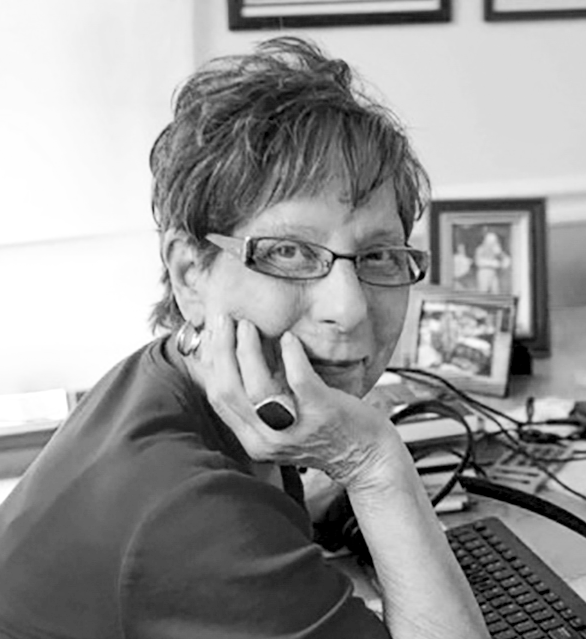
Cavalieri began her relationship with Antioch meeting in people’s living rooms in the early 1970’s. That was when she served as a working artist teaching in Antioch-Columbia’s Creative Writing program. In keeping with its long tradition of challenging what education looks like, the environment that Cavalieri found at Antioch eschewed top-down teaching structures.
Cavalieri was a practicing poet and playwright, and she found it natural to work in collaboration with her students. As she puts it, “We were all shoulder to shoulder creating things together.” These are the students she still meets with regularly, continuing the salon style conversations they started decades ago.
This is fitting for Cavalieri, who describes her poetry and work as centered around relationships. Her poems often focus on her long marriage, which has given her insight into “every facet of emotion a person may have.” Cavalieri’s work thrives in the nuances of how two people interact. Her plays and poetry are all about these intimacies. As she says, “every time you put two people in a room, something’s going to happen.”
This fascination with interplay and conversation led directly to her radio show, “The Poet and The Poem.” Through this position, Cavalieri has been one of two people in a room with over 3,000 poets. The show started not long after she stopped teaching at at Antioch. That was when Cavalieri realized, “I could get 20 in a classroom or 200 in a hall. But I thought, you know, ‘What if I could get 200,000 people?’” She proposed the show to a new Washington radio station, WPFW-FM, and soon had a weekly program. Since then Cavilieri has interviewed every Poet Laureate of the United States, from Rita Dove and Joy Harjo to W.S. Merwin and her idol Louis Glück, who last year won the Nobel Prize for Literature.
She loves talking to writers, hearing their stories, similarities, and differences. She doesn’t believe writers have a choice about committing themselves to literary pursuits. “We come out wired to write,” she says.
For Cavalieri, writing is her “roadmap to life.” Although it’s entailed difficult choices balancing family and work, she wouldn’t have it any other way. As she says, “There’s no price you can put on it. What else do you know in this world, besides poetry and love, where there’s no price tag?”
WORK IS MY SECRET LOVER |
Grace Cavalieri
Work
takes the palm of my hand to kiss
In the middle of the night
It holds my wrist lightly and feels the pulse
Work is who you’ll find with me
when you tiptoe up the stairs
and hear my footsteps through the shadows
you’ll see me lift my arm
to stretch and then lean down
to put my head to it
Work threatened to die once
for all that was left unsaid
so I took to it
flushed with excitement
adultery too yes I admit it
on all the holidays
when others gathered at the table I was dreaming of it
making love to the movement of paper
the words from my lips
the feel of it
sometimes when company came
I’d throw a tablecloth over my Work and set the plates and
everyone acted as if nothing were visible
pretending I was the good host that I was
while on the Christmas tree Work waited patiently
among ornaments gleaming like a groom
I am guilty as charged
for nothing else could buy my feelings
and why would I sell the only thing that ever loved me the way
I loved back
but my beautiful long lasting
faithful lover my friend who will never leave
Writing Your Own Story
Dasha Kelly Hamilton: Poet Laureate of Wisconsin, Poet Laureate of Milwaukee
The poet, storyteller, and organizer Dasha Kelly Hamilton ’11 (Antioch Los Angeles, MFA) knows how to use words to create worlds. She knows that there is an art to building community, just like writing. Earlier this year, Hamilton was selected as Poet Laureate of the State of Wisconsin, the first Black person to receive this honor, and she decided to use the platform to share her experience in a bigger way. “I arrived to this moment, with intention, with experience, with networks—plural,” she says. “All I needed was an idea of what to do with it.”
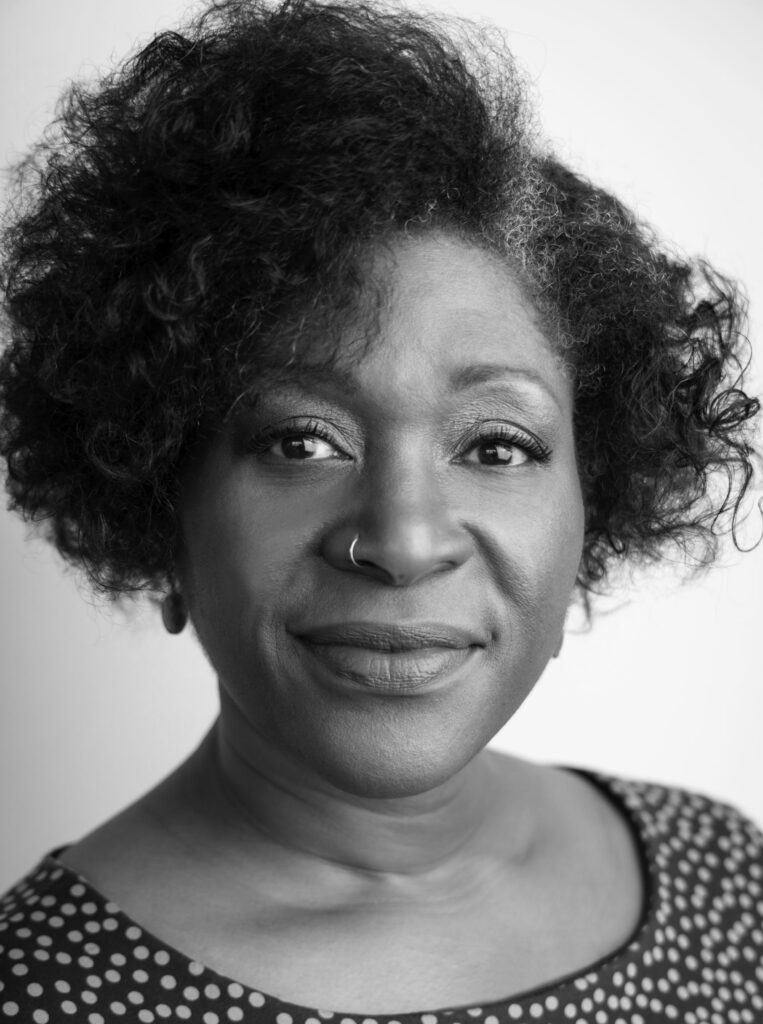
As a longtime activist and educator, Hamilton wanted to start a project that connects people across the state. This project collects poems both from incarcerated citizens and from residents of the state who live outside of the carceral system. Each poem begins with one of 12 lines that Hamilton has collected from her predecessor, Margaret Rozga’s, poetry compilation. When one person sends their poem, they’re emailed a piece from another writer in the state. Hamilton hopes to use poetry to create a bridge between people who would otherwise never interact, to open dialogue, and to start relationships. She calls the project A Line Meant.
For over fifteen years Hamilton has been running workshops out of the Wisconsin prison system. Of all the outreach word work that she’s done, from working with children to seniors, she says that “going into prisons has been the most rewarding. It’s humbling. It’s empowering.”
As an educator she considers herself someone who teaches the value of ideas more than poetry. From classroom to corporate environments she has found that writing offers a chance to validate people’s thoughts and feelings. She uses the process of teaching poetry to show people they’re already brilliant. That, in fact, words work for us. Writing, she says, “changes your relationship with not just poems on a page, not just language in your head, but everything that’s in your head.”
Hamilton is a graduate of Antioch Los Angeles’s low-residency MFA. The program’s flexibility fit Hamilton’s own varied projects, from being an active slam poet to running the poetry collective she started, called Still Waters. In the program, she concentrated in fiction, but she found that the study helped her poetry as well. She describes her “poems as stories and stories as poems.” These multiplicities necessitated a new professional title, and Hamilton developed the perfect one to describe her work in the world: “Creative Change Maker.”
Today, she makes this change in many ways. A new one is through a play she wrote, directs, and stars in. “Makin’ Cake” uses the history of cake to explore race, class, and equity in America. Hamilton uses the show not just as an entertainment experience but also an educational one. The discussions that Hamilton invites the audience into after the show are part of the impact. “Makin’ Cake” has an upcoming national tour, with dates scheduled through next February.
LIFE IN MOTION | Dasha Kelly Hamilton
I see you
Trying to snip yourself
Free from the clash of fabric patterns
Outsize the outline of your fierce
and stunning soul
Coast be not ocean
Edge be not your end
I smell the salt water in your conversation
A slow leak of truth from the corners of your grin
I see you
Fumbling to wrap yourself
In the wind
But I know a costume
When I see one
You carve your journey through fire
Blaze ash compacting in your chest
Footsteps forged into scorched Earth rising like breaths of sage
Glancing backwards will always be an inclination
Forward is your instinct
I see you
Hobbling together a truth of your own
Reconsidering the broken pieces
Polishing the gemstones in your scars
You are incomplete and you are the universe
You are an ever evolution
Ever evolution
You.
Are.
Connecting Art, Poetry, and Youth
Alice B. Fogel: Poet Laureate of New Hampshire
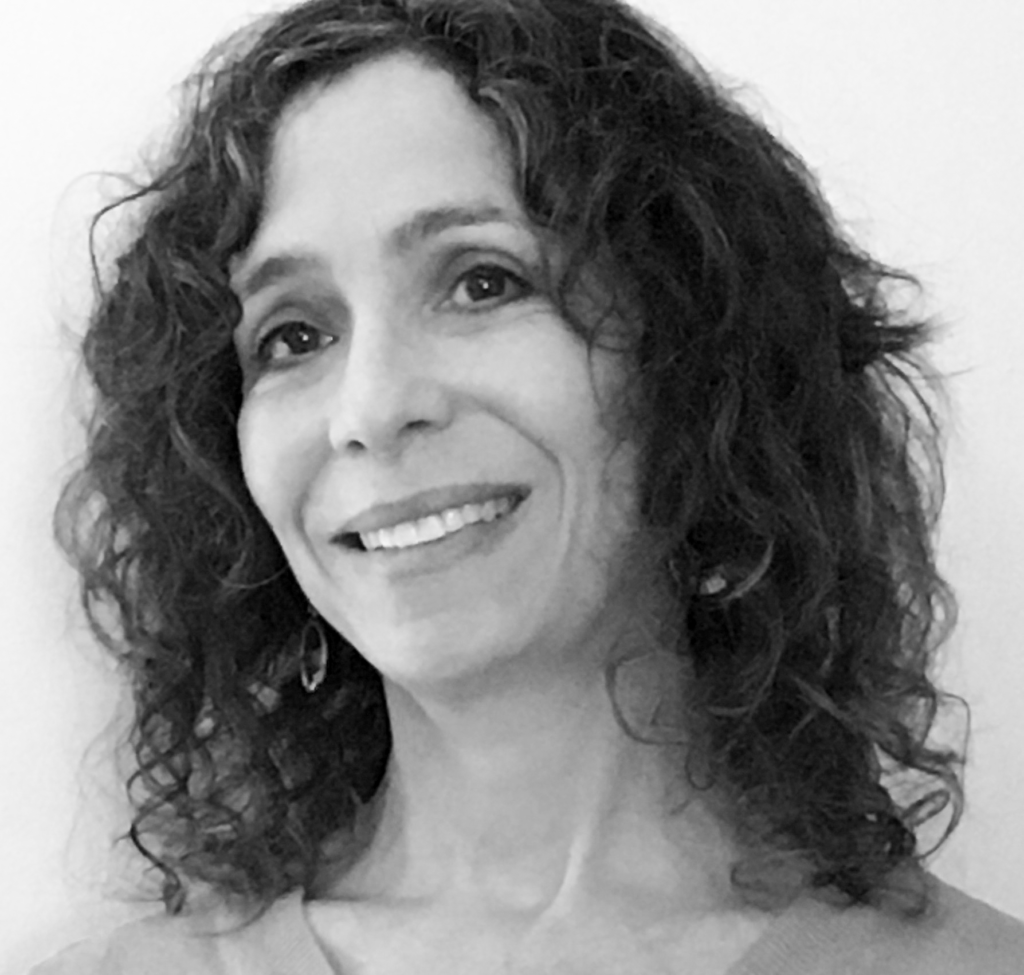
Alice Fogel ’76 (Antioch College, BA) had a combined major in Art, Art History, and Literature in college, and she has continued to find ways to combine these passions in her work. Fogel’s latest book is a series of poems written in conversation with abstract expressionist art titled Nothing But: A Series Of Indirect Considerations On Art & Consciousness. And a previous book that was equally cross-disciplinary. Titled INTERVAL: Poems Based on Bach’s Goldberg Variations, it won both the Nichols Schaffner Award for Music in Literature and the New Hampshire Award in Poetry.
These books showcase how Fogel sees art as interconnected, a vision she brought to her work when she became poet laureate of New Hampshire. In this role, she started a project between visual artists and poets that toured the state. For the project, twelve artists and poets paired up to create both visual and language-based art for a show that traveled to eight libraries around the state. Poetry is much like the abstract art she loves, explains Fogel. It “confirms that not everything in life is able to be translated into logic and the language of commerce.”
But a fascination with and love for interdisciplinary connections is something that has been primary for Fogel since childhood. “I always made things and played music,” she says “There are so many different arts and they’re all necessary to make sense of the world.”
The work she was most proud of in her laureate position was the implementation of a Youth Poet Laureate. By successfully creating this allied role, she helped bring the experience of art to a new generation, in a project that will last past her tenure. Fogel saw it as a natural position to create. “There are so many young people doing spoken word or slam poetry, just trying to express themselves and have a voice,” she says. The project has been so successful there are now multiple Youth Laureates across the state that collaborate on projects. “We actually started having more than one,” explains Fogel, “because there are so many really amazing teenagers.”
Fogel remembers one school visit in particular, when she met a third-grader who wanted to start her own poetry club. She helped the eight-year-old as best she could—seeing in this young poet a kindred spirit in building community and institutional wisdom. “I don’t know where she got the idea,” she says. “But now that she’s started it, it will probably always be there.”
The Necessity | Alice B. Fogel
It isn’t true about the lambs.
They are not meek.
They are curious and wild,
full of the passion of spring.
They are lovable,
and they are not silent when hungry.
Tonight the last of the triplet lambs
is piercing the quiet with its need.
Its siblings are stronger
and won’t let it eat.
I am its keeper, the farmer, its mother.
I will go down to it in the dark,
in the cold barn,
and hold it in my arms.
But it will not lie still—it is not meek.
I will stand in the open doorway
under the weight of watching trees and moon,
and care for it as one of my own.
But it will not love me—it is not meek.
Drink, little one. Take what I can give you.
Tonight the whole world prowls
the perimeters of your life.
Your anger keeps you alive—
it’s your only chance.
So I know what I must do
after I have fed you.
I will shape my mouth to the shape
of the sharpest words,
even those bred in silence.
I will impale with words every ear
pressed upon open air.
I will not be meek.
You remind me of the necessity
of having more hope than fear,
and of sounding out terrible names.
I am to cry out loud
like a hungry lamb, cry loud
enough to waken wolves in the night.
No one can be allowed to sleep.
The Search for Language
Eloise Klein Healey: Poet Laureate of Los Angeles
Eloise Klein Healy is the founder of Antioch’s MFA in Creative Writing—one of the first low-residency MFA programs in the country—and also a prolific and celebrated poet in her own right. But none of that helped her very much when her partner, Colleen Rooney, brought sushi to her hospital room. Klein Healy had loved sushi before a bout of viral encephalitis completely wiped out her understanding of language and speech processes. Now Rooney pointed at the condiments, asking Klein if she remembered what they were. The pink strips of ginger? No. Bright green ball of wasabi? Maybe? Without hesitation she picked up the whole glob of it and popped it in her mouth.
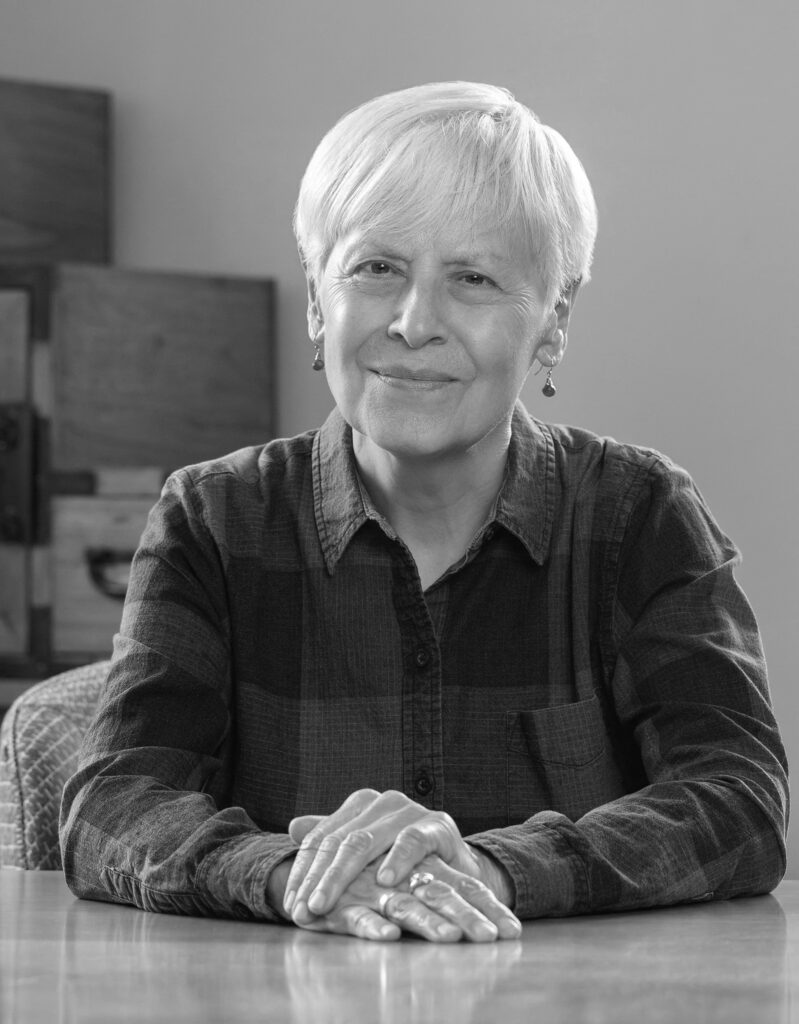
Klein Healy laughed as she told me this story. Then she told me what she did next: she wrote a poem about this experience of using food to remember words. Titled “Wasabi,” the poem is emblematic of her ability to process and make sense of the world through poetry, even when considering the loss of the tools to do so.
“That was a trick,” she explained. “I lost language, but I got it back. I was trying to rewrite it to say how it worked.”
In 2012, Klein Healy became the first Poet Laureate of Los Angeles. She found out, she explains, when a man called to say, “We have been very interested in what you’re doing here because we have never chosen a poet laureate. We’ve never been doing it. And we’ve decided you should be the first one.” She laughs as she
tells this story, too. “I thought, oh great, I’m the Lesbian.” But she was excited for the position. As she considered what she would do with it, she refused the office they offered her and asked instead for a meeting room. She wanted to talk to people.
Unfortunately, it was only a few months after being named Poet Laureate that Klein Healy was struck by her illness. She not only had to step down from this august position, she also was set back from doing the work she had done for so long: writing the city and connecting it to poetry, starting her imprint Arktoi for Red
Hen Press, giving readings, and guiding other writers to find their own voices.
This all had to be set aside for the new reality of guiding herself back to her words. The doctors, she explains, “figured it out that it was really a simple part of a really tough thing, which is: you’ve lost your language.” It was an almost mythically ironic affliction for a language-loving poet. “Yeah, Poet Laureate. Do you want to cry? Or do you want to laugh? That was tough.”
Now, as she describes it, she sees that she has had two lives: the first, where she worked hard thinking about words, and the second, in which she thinks differently, relearning all those words.
Klein Healy’s work now focuses on shifts and reclamations of her language. With the guidance of her therapist Betty McMicken and of her partner Rooney, she started off by attaching words to objects. Like prompts she had once given to her students, Klein Healy began to work through the letters of the alphabet five lines at a time. And she has made remarkable progress. Today she is preparing to release her second book since her aphasia. Titled A Brilliant Loss, it will be published by Red Hen Press next fall.
APHASIA’S NOT WHAT I CAN’T SAY
Eliose Klein Healey
I know where I am
but can’t call it a table.
I also don’t know how to say lamp
or couch, chair, armoire, bathroom.
Dishwasher, no.
I first practice what’s missing
in the kitchen or living room.
I’ve had to practice with my sink,
5 am teapot, and dining room table
near the microwave.
Haven’t practiced the den, office,
bedroom and the stars above.
My list needs help.
Colleen repeats it,
links my words,
linking the ones used
before I lost it all.

